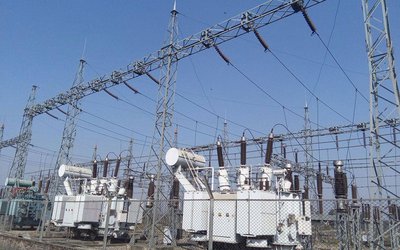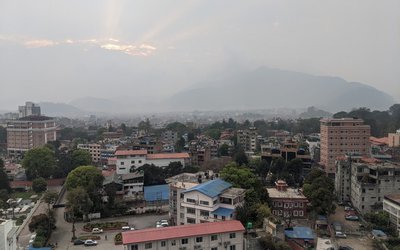
1. RIO+20 preparation and process
Nepal prepared its Position Paper on RIO+20 following the guidance note issued by the UNCSD bureau. It was developed through a rigorous brainstorming exercise with representatives of wide range of stakeholders. National Planning Commission being the nodal agency led the process and prepared background documents including the “Nepal Status Paper” outlining the review of the progress, assessment of the issues and way forward on sustainable development submitted to United Nations’ Rio+20 secretariat. This document was based on feedback collected form the key stakeholder and a number of background reports prepared including the “Mountain Environment and Climate Change in Nepal” the country report prepared for the international conference of Mountain Countries on Climate Change. The “Kathmandu call for Action” issued by the Conference was also referred. All the above review reports were also developed through intensive consultation with a wide ranging stakeholders hence it represented the outcome of discussions and deliberations with representatives from civil society, government and non-governmental organisations, communities, parliamentarians, experts, journalist and students. The NPC received valuable feedback and inputs from its technical partner ICIMOD. The draft position paper was shared at the national expert group meeting to ensure that all the three dimensions of sustainable development – economic, social and environmental were adequately addressed and the two themes and 7 key issues of the Rio+20 were appropriately covered.
Nepal in its position paper had stated that the country’s top priority was eradicating poverty, reducing inequality, making growth inclusive, creating new jobs and promoting sustainable production and consumption habits, while combating climate change impacts. We reaffirmed that poverty eradication and the protection and improvement of the environment are overriding priorities for sustainable development of Nepal and to achieve the sustainability goals, joint efforts from all government, international, regional and local organizations and civil society groups are needed. The formulation of policy framework, plan of actions, institutional setup for implementation, standard monitoring and evaluation arrangement for effective implementation and arrangement of high level coordination mechanism at the centre and also at district level indicates Nepal’s commitment to the agenda of sustainable development. Moreover, for a least developed country, Nepal with weak economy, expensive technology and high cost due to land lockedness related difficulties and mountainous geographic conditions, the task is more challenging.
2. Green Economy for Sustainable Development and Poverty Eradication
The theme of Green Economy was found very appealing for Nepal especially to address the growing effects of climate change, confronting the challenges of providing basic needs like food, fuel, shelter, health care, and providing employment for growing population maintaining human rights, gender equity and environment justice. Therefore Nepal’s position paper argued that Green economy based sustainable development is important but its framework needs to be tailor-made to suit Nepal’s typical mountainous and land locked situation and for that reason, GE must conserve country’s vital ecosystems must be preserved. Nepal is suffering from degradation of its agricultural land, forests, water supplies and biodiversity, and alteration of natural weather cycles due to climate change. We need an economy that provides incentives for low-carbon growth strategies and options and enhances and restores the natural environment, while also providing new “green” livelihoods, jobs and enterprising opportunities. For the country like Nepal with rich natural resources, ecosystem goods and services based economy can present both opportunities and challenges. Sustainable use of natural resources by maintaining balance between consumption and conservation is challenging but Nepal’s example of community forestry has proved that it is possible.
3. Green Growth Pathways for Nepal
Although the term Green Economy itself is not clear as to what it means for a country like Nepal, but given our agriculture and natural resources-based national economy, it makes sense to move towards green economic or green growth pathways. Nepal since its very beginning of the development planning process was in a sort of the green growth path with more than 60 percent of the population dependent on agriculture, 40 percent of land covered by forest and 35 percent of GDP coming from agriculture. There are others sectors which can be promoted towards green growth such as tourism.
Nepal has opportunity to promote green enterprises since Nepal has the comparative advantages in that most of the economic activities are biomass-based that is suitable for women and excluded groups. The most successful Nepali environment friendly programs such as protected area management, community forestry, buffer zone management, farmer-managed irrigation and integrated watershed management, natured based tourism, environment friendly farming, etc. need to be strengthened, expanded and improved to make them more inclusive, integrated and enterprising. These are the major elements of green economy.
Nepal’s agriculture, forestry, water, energy, infrastructure and mountain sectors provide scope to develop vibrant green enterprises due to its comparative advantages. But they lack comparative advantages. These sectors are potential for ventures that are suitable for women, socially disadvantaged groups and the rural poor communities. Statistics also indicated that these sectors are major employer of the currently employed people. The recent development of massive inflow of remittance money adds another comparative or complimentary advantage to Nepal’s green sector. It also reinforces the fact that Nepal’s economy is highly based on green sectors. To develop ownership feeling and increase local support in conservation and sustainable utilisation of resources, Nepal has adopted participatory and community-based approaches. Community based forest, biodiversity, energy and water management approaches are not only effective for greening mountain environments but also provide a base for promoting green economy. Good practices like community forestry, buffer zone management and organic farming can improve both livelihoods and mountain environments in Nepal. Similarly, the strategy of energy development plan focuses on public–private partnership for developing hydropower, renewable energy and distribution system, particularly climate change-friendly development. In some districts local communities have been using income of community forestry for solar electrification and other alternative energy programs. Under the policy of green economy, the community based resource management initiatives need to be strengthened, expanded and improved to make them more inclusive, integrated and sustainable so that large rural population would be benefited. Further, existing policies also need to be harmonized to integrate the objectives of food security, forest and water conservation, and climate change.
4. Key Sectors of Future Sustainable Development
It is important that future sustainable development of Nepal should help eradicate poverty, contribute in meeting the MDGs, ensure food security, sound water management, universal access to modern energy services, and sustainable cities. For Nepal sustainable development and management of mountain ecosystems holds special significance since Nepal is largely a mountainous country. Improving community level resilience and disaster preparedness, as well as enhancing public health, human resource development and sustained, inclusive and equitable growth that generates employment will be paramount. Seven key areas identified for addressing sustainable development and poverty eradication Nepal are: green and better jobs, clean energy, sustainable cities, food security and sustainable agriculture, clean water, sustainable Mountain ecosystem and disaster readiness. Nepal’s framework of actions are developed and implemented based on the Rio principles and is people-centred and inclusive, providing opportunities and benefits for all citizens.
5. Nepal’s reflections on the Rio+20 outcome document and beyond
Nepal’s main expectation from Rio+20 was a renewed commitment of Member States for preserving the Rio principles and fostering implementable consensus for fulfilling the implementation gaps in the Rio declaration and other associated commitments, and addressing new and emerging challenges in a fair and equitable manner based on the principle of common but differentiated responsibilities (CBDR), which was adapted in RIO+20 outcome documents. However, Nepal being the coordinator of 49 members least developed country (LDC) and also one of the lead mountain countries Nepal also had high expectations in terms of stronger commitment for the LDC and Mountain agenda. Many of our suggestions and stands were built through intensive national, regional and global discussions which Nepal either facilitated or took lead in positioning them. For example the LDC agenda was well advocated and articulated by Nepal in the UN conference of LDCs in 2011 whose output was agreement on the Istanbul Plan of Action (IPA) for LDCs. The IPA has been endorsed by the Rio+20 outcome document. Similarly, Nepal working closely with Peru and Switzerland supported by ICIMOD, SDC, and Mountain Partnership intensively prepared the submissions on Mountains and submitted a common text as a contribution to the Zero draft of the Rio+20 Outcome document. Nepal took the lead in mobilizing the support of key member countries’ support at the UN level and was actively supported by Peru and Switzerland that culminated into organizing a side event on Mountain issues in New York and the Mountain Pavilion in Rio de Janeiro on the sideline of the Rio+20 conference. The Rio+20 delegates accepted Nepal’s position both on LDC and Mountain agenda during the series of dialogue process and negotiation processes.
Now that both the agenda have been approved by the global community, Nepal wants to fully implement the relevant programmes included in the outcome document by devising suitable implementation mechanism and assured financial resources in order to move on sustainable development pathways with the help of our development partners. Nepal is fully committed to work with its development partners including ICIMOD in implementing the Rio+20 declaration since Nepal as a nation has not only contributed to its inclusion in the global policy but also because Nepal believes that the RIO+20 outcome document can help Nepal take advantage of its comparative advantages such as rich endowment of water, forest, energy, biodiversity and human resources keeping in mind the principal of common but differential responsibility and respected capacity (CBDR) agreed by various UN conventions.

Purushotam Ghimire
Mr. Ghimire, Former Joint Secretary, Expert/Resource person of CC, DRR, SDGs, participates in the climate discussion at the national and international level. He could be contacted via his email: purughimire@yahoo.com, or gihimirep@gmail.com
- Opportunities For Synergistic Climate Response
- Oct 27, 2017
- Disaster Risk Reduction: Words And Actions
- Nov 22, 2014
- Mainstreaming Disaster In National Development
- Sep 26, 2014
- Managing Disaster Risk And Climate Change
- Sep 11, 2014
- Impact Of Disasters In Nepal
- Aug 29, 2014
















